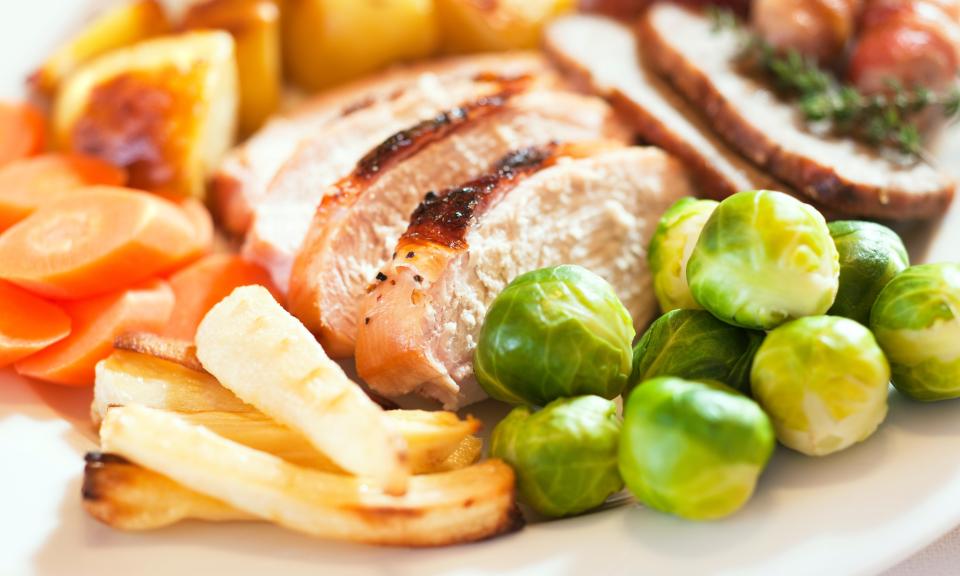UK households will spend 10% more on Christmas dinner, research finds

Households will typically have to spend nearly 10% more on Christmas dinner this year, despite data showing growth in supermarket prices slowed for the first time in nearly two years.
The figures from the market research firm Kantar shows the cost of a traditional Christmas dinner for four – including frozen turkey, carrots, cauliflower, potatoes and Christmas pudding – has risen to £31 this year, up 9.3% from 2021.
That is despite data showing that the rate of grocery price inflation dipped 0.1 percentage points to 14.6% over the past four weeks, thefirst time the annual growth in prices has slowed in 21 months.
Related: Cleaning cuts and chilly stores: the secret diary of a Tesco manager
“As we move into the busiest time of the year for supermarkets, there are signs that the pace of grocery price inflation is easing off slightly,” Fraser McKevitt, the head of retail and consumer insight at Kantar, said.
“Grocery inflation still has a long way to come down though, and based on the current rate, shoppers will have to spend an extra £60 in December to buy the same items as last year.”
The data showed that sales of mince pies and Christmas puddings were down year on year based on the number of people buying them and the overall number of items bought, as people tried to limit spending.
The headline rate of consumer price inflation hit 11.1% in October – its highest level since 1981 – on the back of soaring bills for energy and food, which have reduced the spending capacity of UK households.
Overall, the combination of inflation and festive spending will push December grocery sales beyond £12bn for the first time on record, with 23 December expected to be the busiest day for pre-Christmas shopping.
That is despite the fact that shoppers are trying to offset rising prices by switching to supermarkets’ own-label brands, whose sales have risen 11.7% year on year. Sales of the cheapest own-label brands have risen by 46.3%, Kantar said.
Discount grocers have continued to benefit as shoppers try to get the most out of stretched budgets. Lidl’s sales over the past 12 weeks have risen 22% compared with a year earlier, pushing its market share to a record 7.4%. Aldi’s sales have grown 24.4%, with 1.5 million more households shopping at its stores and its market share reaching 9.3%.
Asda’s share remained steady at 14% despite a 6.1% rise in sales, while Tesco – the UK’s most popular supermarket with a 27.2% share – reported a 3.9% sales rise.

 Yahoo Finance
Yahoo Finance 